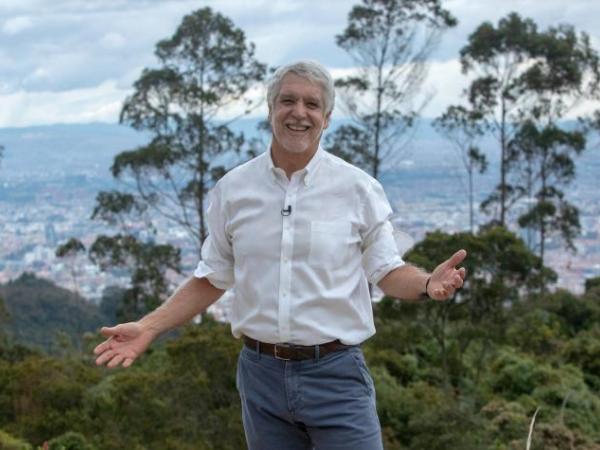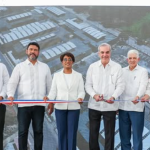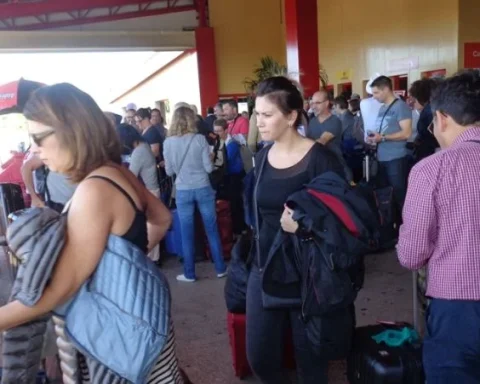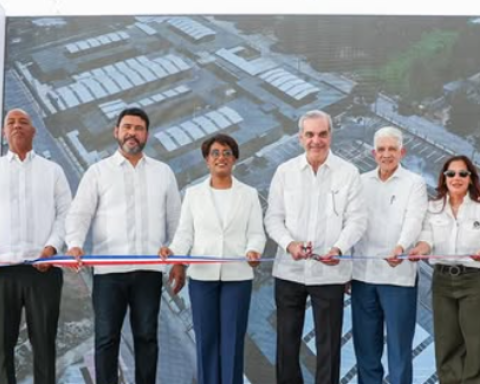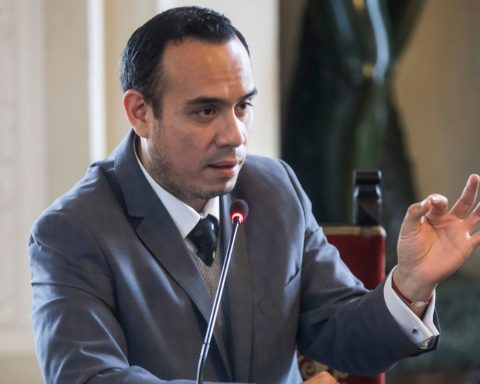Enrique Penalosa He has been mayor of Bogotá twice, and after governing the Colombian capital, he hopes to become President of the Republic for the period 2022-2026. The candidate for the U Party in the Coalition Team for Colombiaconsiders that the focus of the country should be on promote investment, and securityin order to open new opportunities in global trade.
(How Colombians’ intention to vote for the Presidency has changed).
What do you consider to be the country’s greatest challenge in economic terms?
The economic challenge is end poverty, but the only real way to achieve it is with more private investment in small, medium and large companies, Colombian or foreign. The most important thing a government has to do is create favorable conditions for investment. This implies conditions of security, compliance with the law, infrastructure, in tax matters, among various aspects.
It is very important that Colombians understand that. There are countries richer than us because they produce more per person, and they produce more because there are more accumulated investment, whether in machinery, infrastructure or human capital. Colombia adopted the market economy not because it serves the rich, but because it is the best way to manage society’s resources.
How would you boost productivity in the Colombian business fabric?
Contrary to what some wise economists say, entrepreneurs seek productivity, but to the extent that we are also clear that we are integrated into the world and we are competing. The real competition is for investment, and to grow rapidly above 5% we need to export more, but for this we need a more open economy, not the absurdity that Gustavo Petro proposes of raising tariffs, because what it does is that there is more inflation and less efficiency, competitiveness and productivity.
(Risks in the Colombian peso generated by the next elections).
Imports are inputs for our exports. The government can contribute to productivity with infrastructure or better education, and in Colombia there are already a series of tax benefits for investments in productive capital, and that helps to have more competitiveness in theory.
In which sectors should you invest?
More than saying which sectors are going to grow, we must look beyond typical exports, and also review the industrial and agricultural zones. First, we have to realize that from the Caribbean coast we are closer to the US than Mexico, and the US is the biggest market in the world and we have to focus on its east coast more than anything else. In Mexico there are thousands of export industries and in Colombia almost nothing, and this is something that must be promoted. We must make industrial megazones, create specific tax incentives for export industries, take advantage of the FTA we have, nearshoring.
In the agricultural sector there are interesting things, the avocado potential it is very big, for example, but it is not the only thing. Colombia is a country where development is far from the coast, but today we can also do exports over the internet, with topics such as design. For this we need better connectivity, better education, bilingualism and trained talent as engineers and programmers.
And on the other side is the Pacific, the gateway to China, Korea, Singapore and Japan, and even to the US, with California. We must see the case of Panama and Guayaquil, while we have a disaster in the Pacific, with areas dominated by groups outside the law. We are going to transform the cities of the Pacific so that there is investment and tourism.
(This is how the cards for the inter-party consultations remained).
Would you agree with another tax?
No. The rates we have today are very high, but first of all, the Government has to be very austere. Taxes are more than high with a rental rate of 35%, a VAT of 19%, so the tax revenue is increasing and in 2023 it will reach 14% or 15% of GDP. The collection in 2021 was $173 billion, the anti-evasion fights are being very successful, it went from $9.6 billion in 2018 to $24 billion in 2021. That is, in four years $60 billion was achieved due to anti-evasion measures of the Dian , then I think that it is necessary to delve into that, because when a tax reform is carried out they score all kinds of goals.
Rather, if a specific change is wanted for sectors that have unjustified tax benefits, a reform is made just to fix that problem, or only for the export industry, but not a global tax reform. At this time there are also very positive things such as the Simple Tax Regime, since 96% of the companies in Colombia are micro and small companies. In addition, there are a series of tax benefits that end in 2022, and if another tax is made, they come back and put in the microphone to prolong those benefits.
What is your position on oil?
There are absurd issues that Gustavo Petro has said, such as ending oil, which, like the tariffs, the only thing that would do is make the country and its exports less competitive. Brent is around $100, and in 2021 tax revenue was $20 billion, plus $3 billion in royalties. Leaving oil in the ground is leaving dollars in the groundWhen we have problems of misery, lack of roads, irrigation districts, and to say that we are going to leave the money with which we can solve that underground is absurd. If exploration stops now, in six years we will have to import oil.
In addition, Colombia has made gigantic investments in gas. In the last eight years, more than 8,000 km of gas pipelines have been built, 20 years ago people had to cook with gasoline, and today there is enormous coverage. And without gas, there would be no other option but to import it, or cook with electricity, which would generate more costs. As long as there are possibilities to extract oil and gas, we must continue doing so.
LAURA LUCIA BECERRA ELEJALDE
BRIEFCASE
